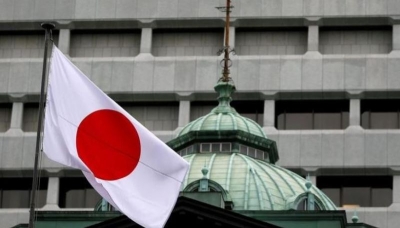






In a world of economic intricacies, the dance of monetary policies takes center stage. Japan, a country grappling with its own unique challenges, has been a hotbed of diverging fiscal and monetary policies. The Bank of Japan, under the leadership of Governor Kazuo Ueda, has been calling on Japanese credit unions to manage interest rate risks amidst uncertainties in the domestic economy. This has sparked speculation about a potential policy shift by the central bank, as it is expected to end its negative interest rate policy next year. Ueda's remarks were made during a national credit union conference in Tokyo, where he emphasized the need for vigilance against tail risks and concerns about a slowdown in foreign economies. The Bank of Japan's latest Financial System Report also highlighted the strength and resilience of Japan's financial system. Meanwhile, Prime Minister Fumio Kishida announced a stimulus package aimed at easing the pain from inflation, which includes tax reductions and cash handouts to low-income households. However, this stimulus package is expected to add to Japan's already high debt levels. The Bank of Japan has maintained its ultra-loose policy stance in the hopes that inflation will ease. Former governor Haruhiko Kuroda, in a seminar, discussed Japanese macroeconomic policy and inflation targeting, highlighting the positive outcomes of his tenure. Japan is experiencing a surprising end to its era of deflation, with higher energy and food costs triggering increased prices and wages. This shift is seen as a blessing, breaking the long-standing deflationary mindset that has plagued Japan for decades. However, concerns remain about the sustainability of this change and the need for wages to catch up with inflation. The divergence between Japan's fiscal and monetary policies has raised concerns about the effectiveness of the overall economic strategy. On a broader scale, the origins of monetary policy disagreement are explored, with a focus on the role of supply and demand shocks. Research shows that supply shocks increase the likelihood of disagreement in central bank committees with a dual mandate, while demand shocks are associated with less disagreement. The impact of supply shocks on interest rate uncertainty among market agents is also highlighted. These findings are based on the analysis of US monetary policy committee votes since 1957. The dance of monetary policies continues, as countries navigate the complexities of their unique economic landscapes, striving to find the right balance between fiscal and monetary measures. [6450abe5] [c4f86e4e] [d960cb5e] [e893bd64] [8c4d24d3] [dbb4626d]